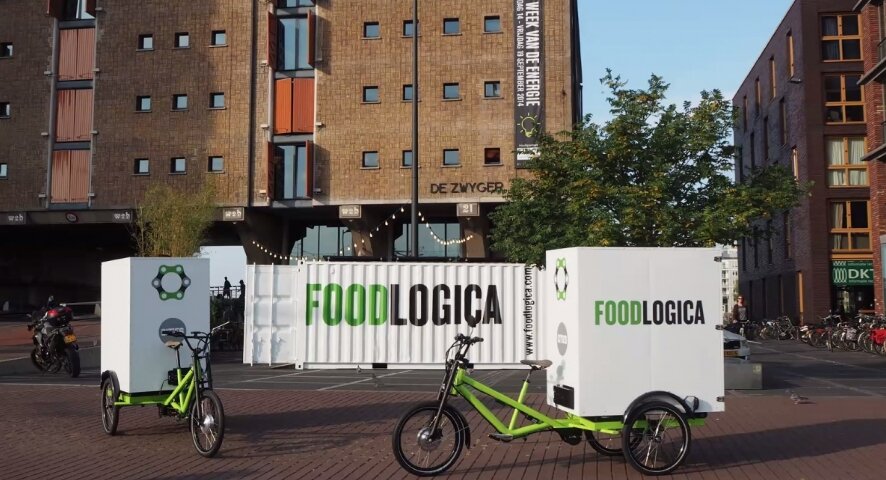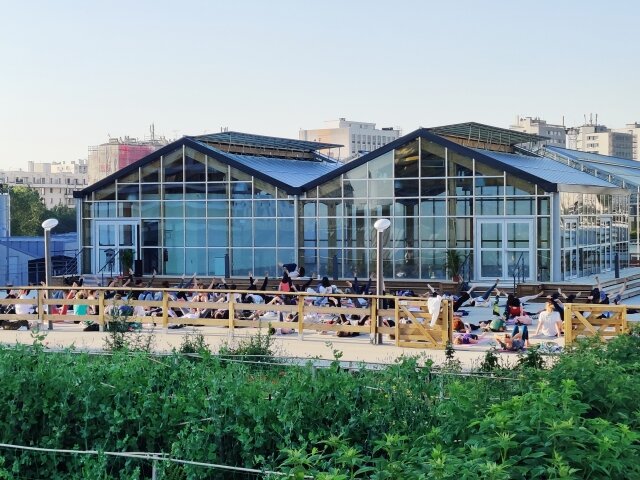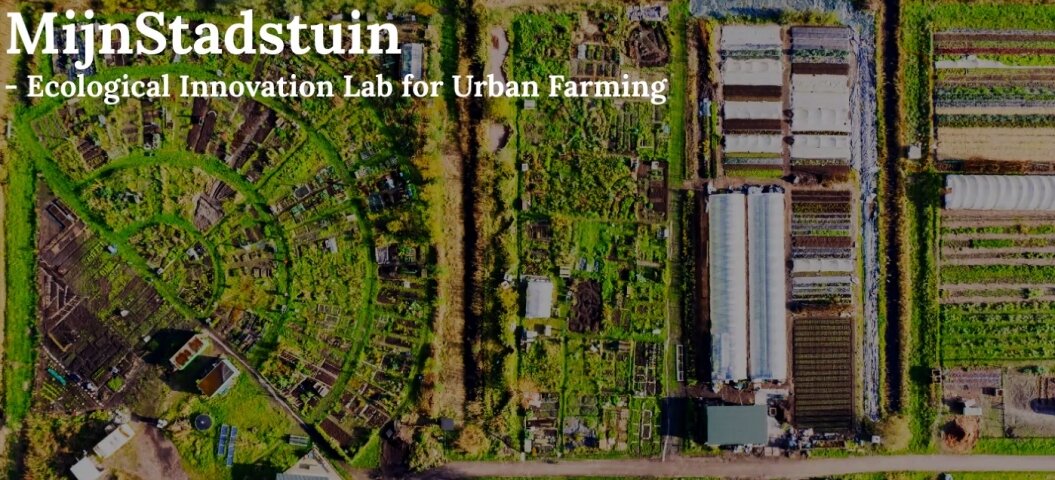Jul 8, 2021
Amsterdam And Paris Exchange On Urban Agriculture Practices

Image sourced from Agri City
Editor’s Note: We love seeing cities taking a more active approach in ensuring food security and increasing urban food production to help support communities. We were pleased to have been invited to moderate this round table between these two European capitals, and believe that with the Agritecture Designer software, we can allow for more clarity on the best practices and provide data models that can help entrepreneurs and cities alike understand the energy consumption and yield potentials of their planned projects.
CONTENT SOURCED FROM AGRI CITY
Written By: Claudia Vasquez Alarcon
Different initiatives unveiled by the cities of Paris and Amsterdam have been shared during a digital round table about urban farming, on 24 June. This round table was initiated by the two cities, in partnership with the Embassy of the Kingdom of the Netherlands in France.
Ideating, planning and implementing urban farming initiatives in European capitals such as Amsterdam or Paris become a real challenge in terms of land surface availability - the average farm surface in the Netherlands is 40 hectares and costs, real state allocations and tenders. In Paris, the local town hall’s engagement and the participation of major food system key players are key.
Parisculteurs, since 2016
Jacques-Olivier Bled, project manager for methods and prospective in urban agriculture and greening of buildings for the city of Paris, together with David Lacroix, head of the plant science and technology department for the City of Paris, described the Parisculteurs initiatives. Since 2016, Paris town hall has initiated urban farming projects through this contest that recently has presented its 35 new urban farming projects (cf. our articles on agri-city.info about this topic).
Amsterdam’s strategy: Moving towards local production
Josja Van der Veer, director of the department of urban planning and sustainability at the city of Amsterdam, supports distributive and regenerative cities and to enhance this transformation the city is working on a food strategy and a circular strategy. Josja Van der Veer has invited the round table’s experts to visit the Floriade horticultural event in Almere, The Netherlands. See textbox below.
Frank Bakkum, urban planner expert in urban farming and food for the department of urban planning and sustainability from the city of Amsterdam, stated that “in urban farming, it is difficult to compete with large scale agricultural production. However, urban farming combines multiple values with food production which are equally relevant to the future of cities. If we open up our food system to these values and ways of production we all benefit, this could be part of the policy strategy in the Netherlands”.
Although achievable goals or indicators can be set to monitor urban farming initiatives from architectural, technical, logistics or investments points of view, Dutch and French urban farming experts agreed that “learning by doing” still remain important as “there are many unforeseen situations and new insights that can emerge at any point of the implementation of the project related to the infrastructure, flows and usability”, shared Marion Journet, agricultural production manager at Veni Verdi during the “architecture and urban farming” breakout sessions. Indeed, urban farming initiatives are often led or managed by young teams who have acquired their expertise in local initiatives or also in the US, Montreal or closer European cities. Therefore, some successful models are being replicated or adapted.

Image sourced from Agri City
The French-Dutch round table was moderated by Henry Gordon Smith, Founder and CEO at Agritecture, a consulting firm specialized in simulating business models and figures in regenerative farming practices, vertical farming, and greenhouses for young entrepreneurs and investors. According to Henry Gordon Smith, who is an expert in agriculture and architecture, “with the help of our own software, we can provide best practices and data models such as how much energy will be used or how much food will be produced in specific conditions”.
Looking beyond the business model
The economic business model is quite clear to some entrepreneurs, others are still figuring out to maximize rooftop usages that go beyond sales of fresh aromatic herbs to local restaurants, as is the case for Sidney Delourme, co-owner at Cultivate & Plantation in Paris. Although Sidney reckons that financial balance is tight for any soil-based production, his model is based on a hybrid solution with the addition of a high-tech, hydroponic greenhouse (1.200 m2), which produces short-cycle crops (between 4 and 10 weeks) including 30 different varieties of herbs, microgreens or salads. “For us, tech is not a goal, but an enabler to do better and greener: our greenhouse is fully remotely monitored and controlled to ensure smooth operations 24/7, and our carbon-free heating system operates on the heat produced by a data center which is located in the basement of the building", said Sidney. Our target is to reach 50 tons of production next year and we aim at hiring a total of 15 - 20 workers for this project by 2024”, added Cultivate’s co-founder.

Image sourced from Agri City
Sem Roefs, urban farmer and director at MijnStadsTuin Amsterdam, won a tender organised by the city council of Amsterdam. In vegetable gardens of 50m2, Amsterdam citizens cultivate 70 different crops on a surface of 4 hectares, with the help of Sem’s team providing irrigation or maintenance to the plots when the users were locked down, sick, or on holidays. Eight entrepreneurs have their own business in MijnStadsTuin and some of them base their work on food waste (i.e by creating mushrooms from coffee beans). Sem is currently looking for investment funds to bring his project to the next level: build a community facility where “citizens can learn more than fresh food production and consumption”, he added.
Green awareness
The urban farming movement goes beyond food as it affects our way of living, working and consuming, too. In order to reach these goals, good governance and the implication of policymakers, town halls and private entities and initiatives are key factors.
Four shared initiatives:
From Amsterdam :
Francesca Miazzo, co-founder and CEO at Food Logica, launched in 2014, delivers food from 100 local brands in Amsterdam, Utrecht, The Hague, Milano and Paris, by electric bikes, vans or trucks. Based on a Community Supported Agriculture (CSA) model - built on fairness and transparency for both the farmer and the consumer-, Food Logica also serves food from high-tech, milk and vegetable farms to local citizens.
Ard van de Kreeke, Growy’s founder, claimed his start-up is the first firm to offer tasty, healthy and affordable products 100% based on circular economy as the food waste is collected, unpacked and processed into a biogas digester to be converted into plant food or clean water, electricity and climate control. Meanwhile, the Growy house consists of vertical farms aimed at local communities, the growing farm is composed of entirely robotised and monitored vertical farms focused on retailers and foodservice, based on a hand-free harvest and packing model. Both systems offer salad mixes, microgreens and tasty fresh herbs with long shelf life, with high nutritional values with an optimal yield up to 1 ton/m2 per year.
From Paris:
Paris Habitat, represented by Juliette Mardon, operates with an associative urban farm located in different locations in Paris, totaling more than 5 hectares (some of them in partnership with ParisCulteurs). Aromatic herbs are grown on roofs and in gardens and new projects will be launched in 2022 on a 1.970 m2 rooftop combining greenhouse farming and hydroponics, together with Veni verdi, and associating urban farming initiatives with social projects, using car parks for cultivating crops.
Weshgrow, owned by Laurent Couraudon cultivates in three car parks, located close to the Eiffel tower, more than 100 microgreen varieties (1 up to 3 week-cycle), which are baby vegetables that contain 4 up to 40 times more vitamins (C,E,K) and carotenoids, minerals and antioxidants than regular ones. The tasty, pesticides and chemical-free microgreens are freshly cut every morning at 06h in the morning then delivered at 08h to Monoprix, a French retail store, or to local restaurants, by bike or scooter. Weshgrow currently cultivates 50 rare aromatic herbs in a new urban farm of 4.000 m2 located on Beaugrenelle shopping center’s rooftop. Projects like Weshgrow, combining soilless and outdoor growing, could stimulate young farmer's generations to implement similar urban farming initiatives.



